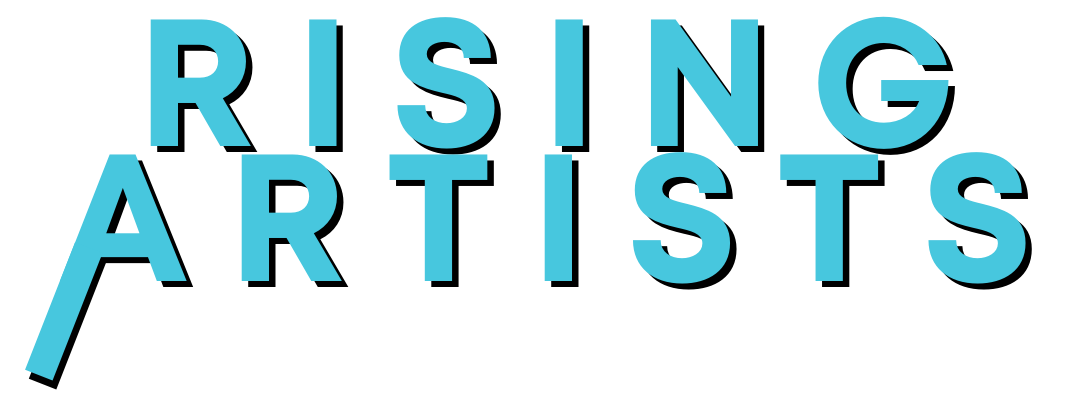In the neighborhood he lives in, Morray is surrounded by people. He holds a towel in one hand and a bottle in the other. He dances and laughs, vibing with everyone around him. In the “Quicksand” music video, there is a genuine expression of love and happiness that a community, although the song itself is about temptation and dangerous real-life situations. This contrast continues to be carried out in his songs and videos.
Morray’s music comes from telling the truth, which to him is deep-rooted in personal struggles and pain. After the release of his debut single “Quicksand,” “Dreamland” and “Big Decisions” offer a glimpse into his early life. Growing up in Fayetteville, North Carolina, Morray’s mother worked a low-wage job, struggling to keep a roof over their head and put food on the table. At the same time, his abusive father was often absent and causing problems. He spent his childhood moving in and out of basements and motels.
Morray didn’t have anything offered to him. For that reason, he learned everything the street way and fought for what he got. In his early teen years, he started causing troubles and later hustling. With stints in juvenile detention, he served jail time in his early 20s. In order to support his child, Morray worked a construction job, where he walked hours to get there every day while working on his music projects on the side. In 2020, “Quicksand” poured out of him during a creative challenge from his wife. The song reached more than 13 million views on YouTube within three months of release. Morray’s success didn’t come easily, and certainly, it didn’t come without the support of people who stand by him and believe in him.
“I don’t know if a lot of people could relate to my truth, but I don’t mind putting my business out there because I know another person who’s going through what I’m going through needs help,” said Morray. There’s always a strong sense of giving back and staying true to the current world. In “Quicksand” and “Trenches,” Morray turned the camera to normal-day people, capturing the beauty and happiness in the hood, despite how things are depicted on TV or in the news. While in the newest video of “Mistakes” incorporated his relationship with God and contemplation on the BLM movement into its narrative.
Being a native to Fayetteville, North Carolina, it only makes sense to him to shoot in the neighborhood he lives in with the people he loves. Life isn’t perfect. There are pain and real struggles, and bigger things we can’t change, but Morray’s music is about sharing, reflection, and uplifting. “There’s still light in the dark days,” he said.
Written by Katrina Yang

Press Q&A with Morray
Q (Rising Artists Blog): “Trenches” is one of my favorite songs on the mixtape. What are the inspirations beyond the song?
MORRAY: The song is inspired by people like your daughter. Watching them go outside, play, and have a good time. Not just the gun shooting and crazy stuff. You can really go outside, enjoy your barbeque, having a good time. Everybody understands that there are gangsters, but there’s also another part of it where you can enjoy, have a good job, have a good family, and have a good career in the hood. You don’t have to be miserable in the hood all the time. There’s still light in the dark days where there are good times, jokes, and laughter. The song is about understanding that.
Q (Rising Artist Blog): In your music videos, you’re surrounded by people – a community. This is something really powerful to see in a music video. Can you elaborate on the concept of community and talk about those people who made an impact?
MORRAY: People you see are the video are my team. Everybody is family. We move and talk like family. If you got a problem, your lights off, or you’re just bored, you’d like to talk; we’ll show up for each other. I love my city, and I’m waiting for opportunities to do what I can. Last year, I prepared Christmas presents for kids I didn’t know. A couple of months ago, I did my “Trenches” video in Fayetteville. I want to show my community that I love them, and I care about them. It’s a small gesture, but I want to keep doing that.
Q (From the Future Zine): What is your favorite part of making music?
MORRAY: My favorite part about making music is the first feeling you get when you hear a beat for the first time. That feeling is indescribable. I love to freestyle. I love the non-written. When I hear a beat for the first fifteen seconds, I fall in love, and I just go. I freestyle my hook, and I write to it. I love the instrumental. That’s my favorite part about music. I love hearing the instrumentals, the chords, the guitars, the drums.
Q (New Wave Mag): Some people say that you fall into the category of melodic rap, a sound that has been missing for a while, I think. I think a lot of people would agree. What do you think makes you unique in this category and to previous musicians? Do you think this is a genre our generation gravitates into what’s less as most songs turned out to be catchy and quirky like Tik Tok?
MORRAY: I think every type of music is needed. I think the catchy ones are needed for people who are driving and just want to sing along. Songs like mine, Rod Wave, Roddy Ricch, and a lot of the pain guys. We give songs to those who need to hear them as well. The way we come across it is not what is me. More like, I’ve been through it and come through it, so we communicate. That lane will always be there. Pain is one of the things that always resonate with everyone. The catchy Tik Tok songs are needed too. There are songs for reflection, and there are songs for turnup.
Q (New Wave Mag): Your sound has been described as “combining the soulfulness of Big K.R.I.T with the bounce of OutKast.” Do you feel that true wisdom produced in soul has been missing from the music industry, and do you feel your music fills the gap?
MORRAY: I don’t think it’s missing. I think they found a different variation. It’s all subjectiveness. You can find jazz and blues in any song if you listen close enough. Nothing we do here is new. Everything we do, we pull up the old school. I feel like my music is different because it comes from my truth. I don’t know a lot of people relate to my truth, but I don’t mind putting my business out there because I know another person who’s going through what I’m going through needs help. I really got the imprint of the blues, R&B, and old-school hip hop.
CLICK HERE TO LEARN MORE ABOUT STREET SERMONS
STREAM STREET SERMONS:
FOLLOW MORRAY:













